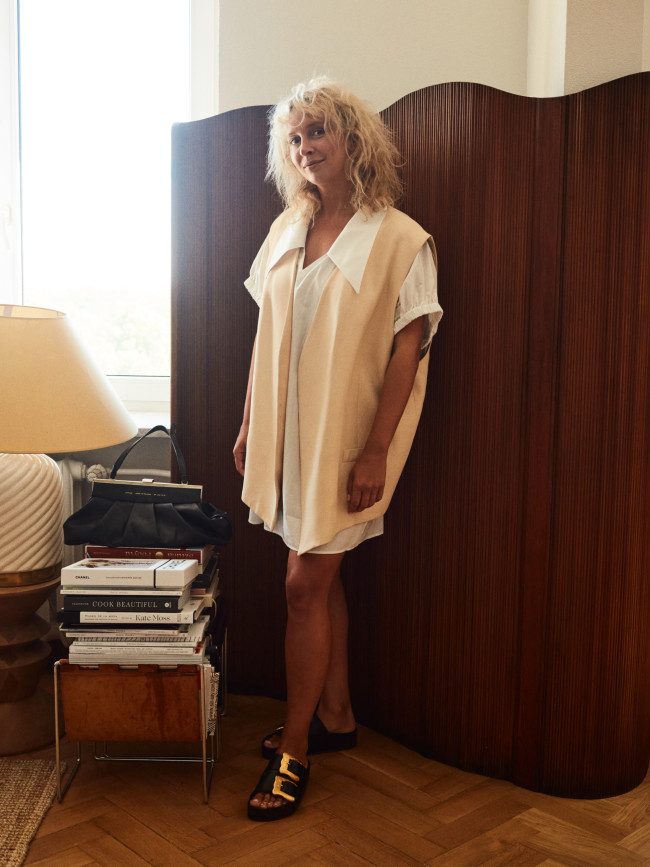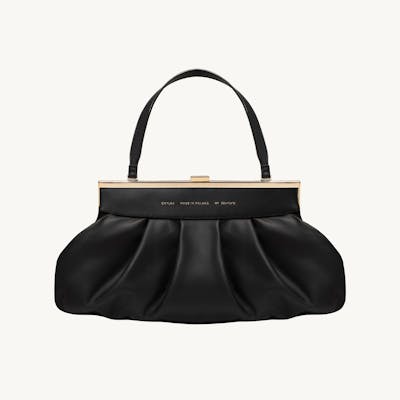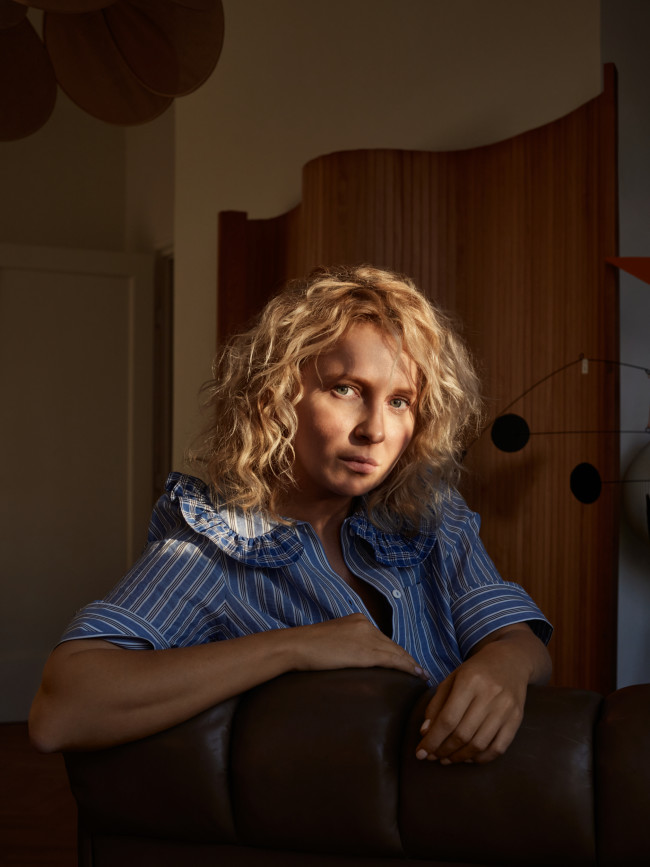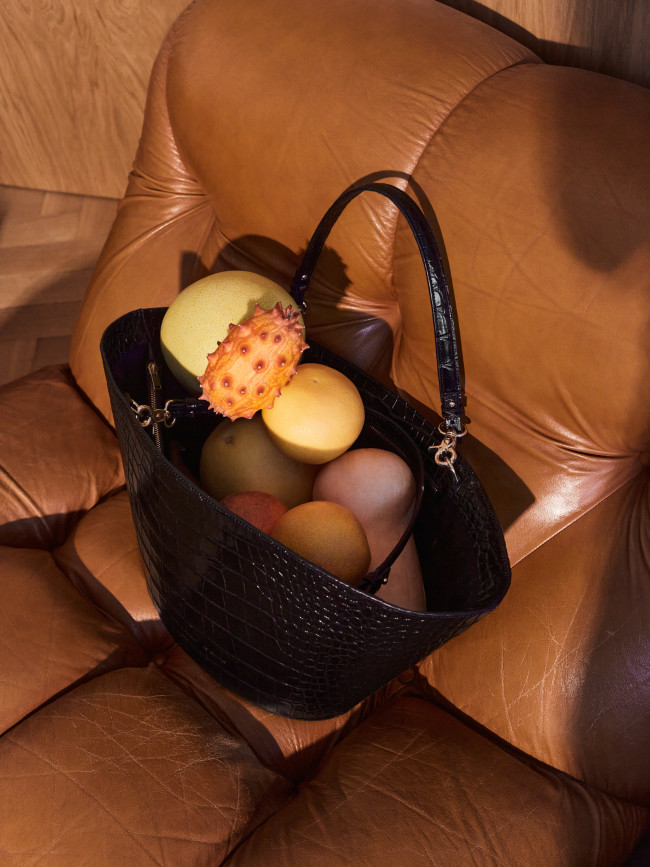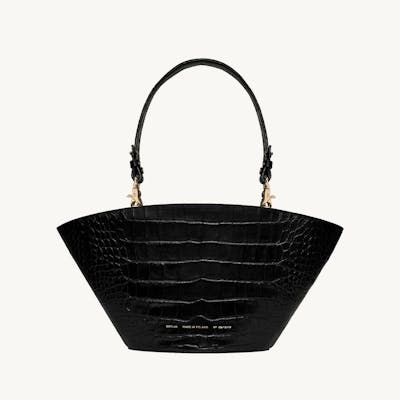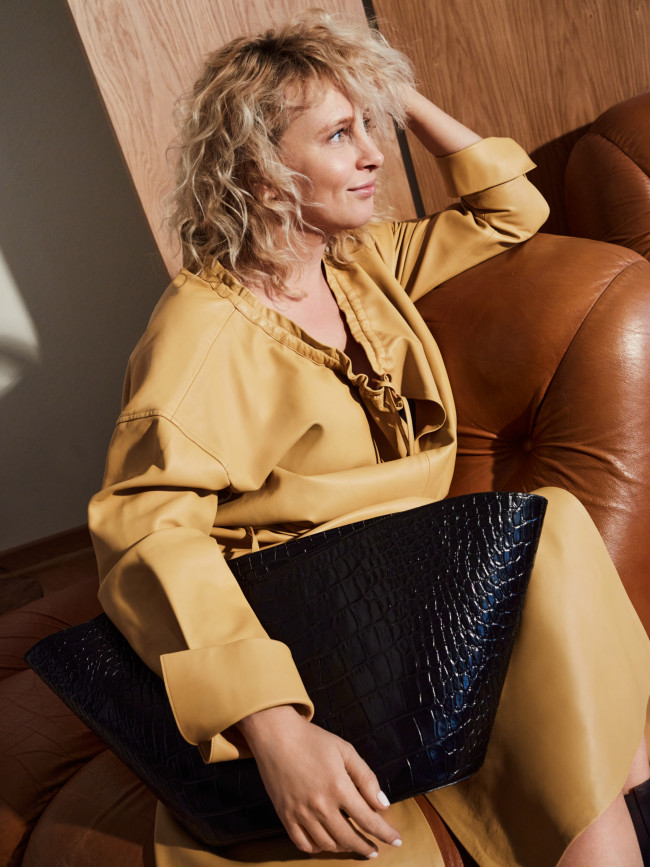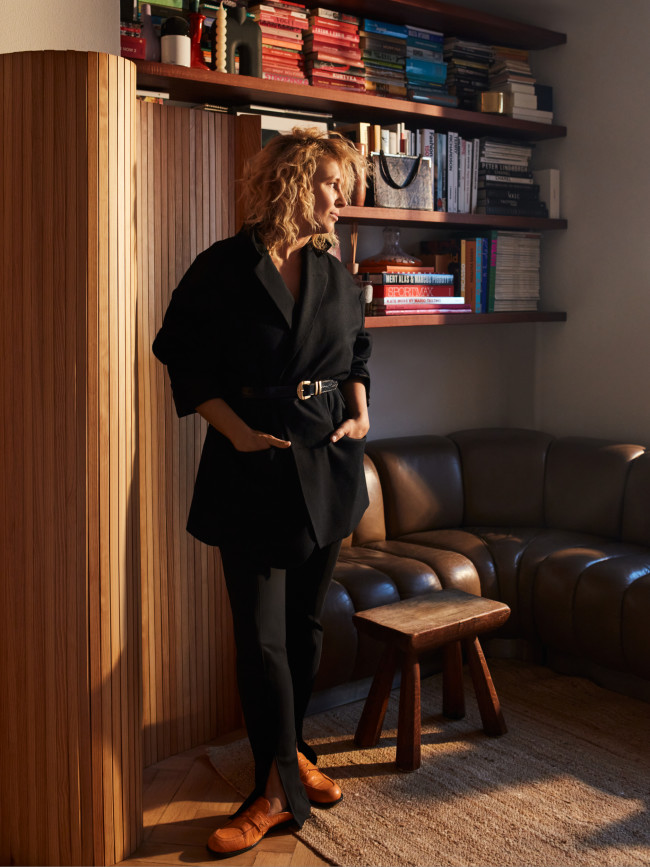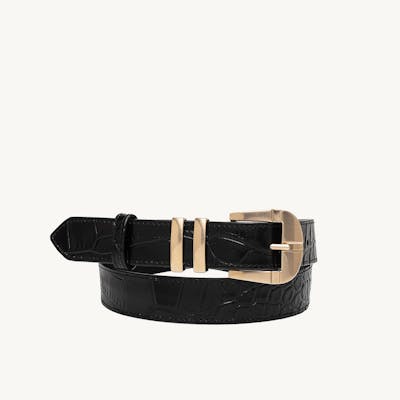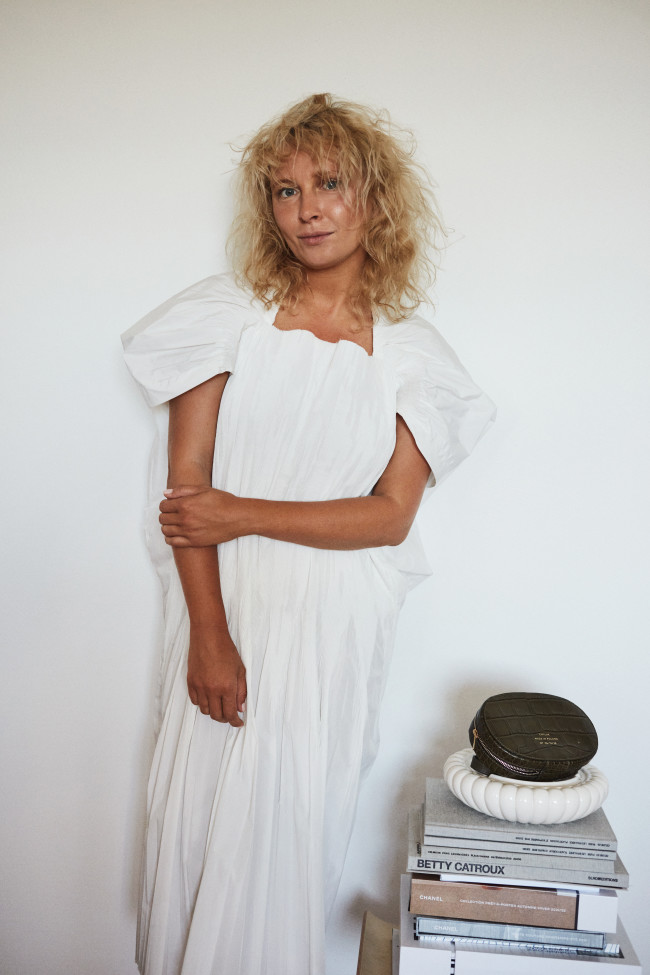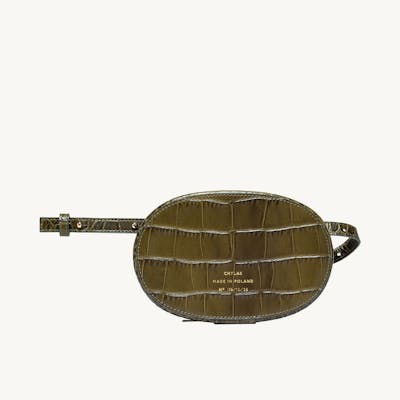
By: Maja Von Horn
Photography: Gosia Turczyńska
Karla Gruszecka, top Polish stylist and contributing fashion editor at Vogue Poland, tells us about the highs and lows of a career in fashion.
Maja von Horn: You’ve worked in fashion for the last 14 years, so I don’t think it would be an exaggeration to say that you’ve dedicated your life to this industry. Has the pandemic allowed you to finally slow down?
Karla Gruszecka: Work has always been the most important part of my life, I put it at the center of everything. Ever since I was a kid, I dreamt of working at a newspaper, it was my number one goal. But a year in the pandemic has changed my entire attitude toward work, fashion, and above all, myself.
As late as March 2020, I was still attending fashion shows in Paris and Milan. When I came back to Warsaw, Vogue asked me to quarantine for two weeks. I don’t remember ever having to spend two weeks at home. I put on some sweatpants and I sat there, terrified. In normal circumstances, I would have gone back straight to the office and I wouldn’t have even a moment to enjoy and reflect on what I saw during the fashion weeks. I would always marvel when celebrities would talk about their everyday rituals in interviews. I’d think: ‘Where do they get the time for that?’ My only ritual was to repack my luggage every couple of days. During the pandemic I remembered that I loved to cook and that I was really good at it. I love spending time at home, doing groceries and getting freshly cut flowers. For the first time in years I had time to appreciate regular life.
M.v.H.: It never bothered you before that you were working 24/7?
K.G.: Only during the pandemic did I have time to realize that I’ve been under immense pressure for the last several years. If someone asked me last year what my dreams were, I’d tell them that I fantasize that all the packages with the clothing I ordered for a photoshoot arrive in time. As one of the few people who were selected to be part of the first editorial team at Vogue, I came under an amount of pressure and public scrutiny that I wasn’t prepared for. I’m an honest, hardworking girl, who is always ready to learn new things, to grow. And then suddenly everyone had an opinion about me ― not always a favorable one ― which they wouldn’t hesitate to share at an industry event or online. They’d judge not only my work, but also my appearance and my behavior. This was very difficult for me.
M.V.H.: You spent the entire spring of this year in Mexico and California. How did that change of scenery and lifestyle affect you?
K.G.: Up until recently, when I’d travel, even if on vacation, I’d always rush to see everything, experience everything. This spring, in Mexico, I learned how to let go, for the first time ever. I gave myself time to sleep, to slowly drink coffee, and to just do nothing. I started taking care of myself, my own needs. I understood that when rested and happy I’m more creative, I work better. I spent a month in Mexico, producing a photoshoot with a wonderful team, but also giving myself the necessary time and space to slow down and to have conversations about what is important. The following two months in California were a continuation of my journey within. I came back to Warsaw a different person. I still like my work a lot, but I was reminded that I like other things as well.
M.V.H.: A positive side-effect of the pandemic?
K.G.: I think that the last year has made many people rethink their values. Interpersonal bonds and relationships were tested, and people realized they wanted a better quality of life. This may sound trite, but getting Covid made me realize that the most important thing in life is your health.
M.V.H.: What have you learned about people in your years of working for fashion magazines?
K.G.: I realized the importance of having a male factor in a women’s magazine, of having a guy who is a calming presence. I’ve had two amazing bosses in my career ― Marcin Świderek at Elle and Filip Niedenthal at Vogue. They both made me feel special, appreciated, and professionally taken care of, and that’s a priceless feeling. I’m rewarded for my commitment to my work with the beautiful photos that we create, but above all, with the relationships I forge with wonderful people. The conventional wisdom is that the fashion industry is fake, shallow, and insular. But it all depends on the people you work with. I’ve been lucky enough to have met genuine friends through my job.
M.V.H.: Your creative partnership with photographer Sonia Szóstak has resulted in some of the best shoots in your career. Can you talk about your work together?
K.G.: We first worked together when I was a stylist at Elle. It was a cover shoot with the actress Zosia Wichłacz. We didn’t click right away, because we’re both feisty and stubborn, we each march to the beat of her own drum. But aesthetically, Sonia’s eye has always been the closest to mine out of all the photographers I’ve worked with. Our first work trip together was to Marrakech, where we put together one of my favorite Vogue photoshoots that we’ve done ― it’s black and white, nostalgic. Several other Vogue editions bought the photos afterward. It was during that trip that something sparked between us, and I understood that we have the same frames in our minds. Sonia is more poetic than other photographers. We also like the same models, we never have a problem with choosing one. We were both mesmerized by Heather Kemesky, Maggie Mauer, Birgit Kos, among others. Today we’re a tight-knit team, we understand each other without words. This spring, I helped Sonia organize her wedding on the beach in Malibu. In New York we recently had a meeting at the modeling agency Elite. It turned out that their agents already knew and like our shoots. It’s so nice when our work gets noticed and appreciated abroad, when we are treated there as equals. In Poland people have a tendency to minimize your accomplishments.
M.V.H.: Why do you think that is?
K.G.: Everyone thinks they are an expert in everything. Social media have made this worse, since everyone can publicly say what they think. But the fashion industry in Poland is only twenty years old, it doesn’t have the same heritage as in the West. We know so little about fashion, there are so few actual authority figures. During meetings with stylists from other Vogue editions I’d always be one of the youngest people present. Most of the renowned stylists abroad are over fifty.
M.V.H.: You’ve worked for many publications including Viva Hot Moda & Shopping, Harper’s Bazaar, Elle, and finally, Vogue. When you were first starting out, there were no fashion schools in Poland. Where did you learn about fashion?
K.G.: I learned on the job. I learned a lot while working for each of these publications, my aesthetic sense kept evolving throughout all those years. There are few people who are born with a trained eye. It takes years to train it, whether through travel, work, or just interacting with fashion and art every day. That’s why the stylists that are renowned abroad are much older than the ones in Poland. The older you are, the more trained your eye becomes.
M.V.H.: And what did you learn by consistently attending fashion weeks?
K.G.: I stopped worrying about being provincial. Spending time with editors from other Vogue editions calmed me down a lot. Before, I thought that I always had to be hot, on trend, to have all the fashionable clothes. Today no one changes their outfit from show to show, no one is seeking applause like they would have just a couple of years ago. You put on some quality moccasins, a watch, a blazer, simple pants, a beautiful scent, and that’s it. During fashion shows in Poland there’s still a tendency to be overdressed, overdone. In Paris I understood that I didn’t have to prove anything to anyone.


M.V.H.: How has your attitude toward fashion changed in the last several years?
K.G.: Fashion should be fun, it should be a reprieve, it should cheer you up. It has lost its lightness, by becoming political, socially engaged. It’s become another medium to use as an excuse to talk about challenging issues. This is all good and fine, but it leaves very little room for creativity. Fashion today doesn’t give people as much joy as it used to, it doesn’t transport us into the world of dreams and imagination. It’s firmly planted in reality, and our reality is quite grim. I think that in these difficult times people need a break, some respite. The fashion industry has a tendency to fall into extremes. Either everything is eco-friendly, or nothing is eco-friendly. Saying that a dress made out of plastic is actually made of “vegan leather” is absurd. We used to fly everywhere by plane, and now people say not to fly at all. There is no balance.
M.V.H.: You’ve been supporting Polish brands for many years, is this a personal mission of yours?
K.G.: I have a very emotional relationship with Polish brands, since I know the people who are behind them, and their stories. I can recall their first steps in the industry. I believe in brands like Chylak, Le Petit Trou, MISBHV, Magda Butrym. I’m always impressed by how much they’ve all grown. I remember how my friends and I would wear Chylak’s first bags, the black buckets. Women would stop me on the street and ask where I got the bag from. Several months later, when you’d go to a bar or restaurant and you’d put your bag to the side, you wouldn't be able to figure out whose was which, because all the girls at the bar would have one.
M.V.H.: Looking at it from today’s perspective recalling those early days is quite moving.
K.G.: I generally have an emotional relationship with fashion. I’ve had a Cacharel coat with a cloud pattern that I got from an ex-boyfriend in my closet for more than a decade. I still wear it all the time. I have more clothes like that, things I’ll never get rid of.
M.V.H.: Your life choices require a lot of courage, have you always been brave?
K.G.: I think so, as a kid I was a walking rebellion, a menace. I was a living hell for my parents. My knees and nose were always scraped up. I was a difficult teen as well, playing hooky, obsessing over boys. During my university years I’d often visit London where I worked, among others, as a fortune teller’s assistant.
M.V.H.: A fortune teller?!
K.G.: She had a crystal ball, read tea leaves.
M.V.H.: And what did you do? Polish the crystal ball?
K.G.: No, I’d help her take care of her three kids. I’m very open toward people. My friends tell me that I’m one of the bravest people they know.
M.V.H.: What is the biggest challenge for you these days?
K.G.: To reconcile my work and my private life. My dream is to slow down, to have the time and space to be excited by my work.


Karla's favorite places in Warsaw
- Pacyfik
Best fries (with kimchi) and margaritas - Mod
Great selection of natural wines and best donuts in Warsaw - Galilu
Select scents from around the world - Crush
Vintage store that has the best pieces - Kyosk
A taste of Scandinavian fashion in Warsaw - Nonna
My favorite pizza in Warsaw - Bebe Concept
A great selection of beauty products and coffee table books, not only for moms - Heritage Plac Zbawiciela
Perfect for some wine on a summer night - Chylak & Le Petit Trou
For all aesthetes and hedonists - Mozaika
Favorite weekend brunch - Między Nami Cafe
A restuarant with live music and a small vintage & ceramics store

